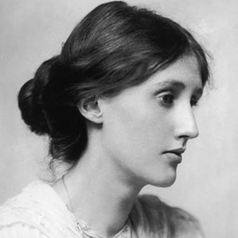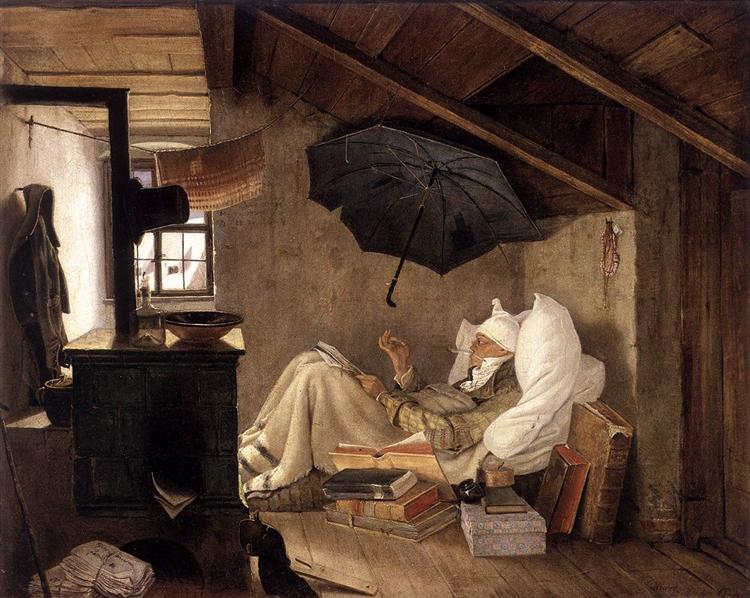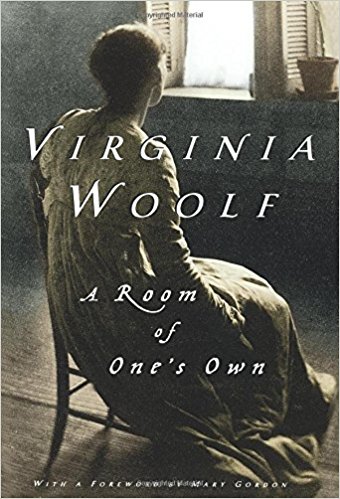A Room of One’s Own Summary
10 min read ⌚
Time to forget everything you know about men and women. Because even if it’s accurate, it’s probably not enough.
Virginia Woolf is here to make some things clear for you. In the seminal feminist essay, “A Room of One’s Own.”
Who Should Read “A Room of One’s Own PDF”? And Why?
There are few texts in the history of feminism which are as important as Virginia Woolf’s “A Room of One’s Own.” In fact, one could even argue that all 20th-century feminism comes back here, to this extended essay of no more than 100 pages.
If you are a woman – especially a young, creative one – you must read it. If you are a man – especially a boy – there’s no better place to start learning what feminism is and why it’s not just a fad, but a fight for fundamental human rights.
About Virginia Woolf
Virginia Woolf was an English writer, considered one of the most important modernists in the history of literature and, together with James Joyce and William Faulkner, a pioneer of the stream-of-consciousness narrative technique.
was an English writer, considered one of the most important modernists in the history of literature and, together with James Joyce and William Faulkner, a pioneer of the stream-of-consciousness narrative technique.
A short space like this is too small to list all of Virginia Woolf’s achievements and adequately portray her uniqueness. She was one of the founders of the Bloomsbury Group, an essayist and literary critic, an original thinker and one of the most important feminist voices in history.
She authored few novels which are widely read and admired even today: “Mrs Dalloway,” “To the Lighthouse,” “The Waves” and “Orlando.”
Shortly after completing the manuscript of her last novel, “Between the Acts,” Virginia Woolf took her own life by drowning herself in the River Ouse near her home, on 28 March 1941. Her body was found 20 days later.
“A Room of One’s Own Summary”
Before we begin, spend a minute or two thinking about this image.
We’ll help you get started: it’s called “The Poor Poet.”

The painting was drawn by a German romanticist painter called Carl Spitzweg, almost two centuries ago.
Many claim that it was the favorite painting of Adolf Hitler, prompting a modern German artist known by the mononym Ulay, to once steal it from the Berlin museum and hung it in the living room of a Turkish immigrant family.
Yes – art has changed a lot during the past two hundred years; and no – it doesn’t mean that if you like something Hitler liked you’re bound to become like him.
After all – he was a vegetarian for the last few years of his life. And he did like animals. He just really hated people.
Anyway, what Hitler supposedly liked in this painting is the very same thing you like it too. Namely, how beautifully Spitzweg’s work represents the epitome of the artist: poor, desolate, barely making life’s ends meet – but still dedicated to his ideals, reading and writing in the worst conditions imaginable; because, well, there’s a higher god he has devoted his life to than money or material wealth.
One more detail you couldn’t have noticed: this poor creature is wearing a Phrygian cap, which at the time, symbolized freedom and Republican resistance. So, the guy is not merely the archetypal poet; he’s also an idealistic devotee to the belief of a better future for all humans.
(Come to think of it, Hitler might have missed this detail too.)
Time to burst your bubble, though:
“It may seem a brutal thing to say, and it is a sad thing to say: but, as a matter of hard fact, the theory that poetical genius bloweth where it listeth, and equally in poor and rich, holds little truth…”
And even more:
“The poor poet has not in these days, nor has had for two hundred years, a dog’s chance… a poor child in England has little more hope than had the son of an Athenian slave to be emancipated into that intellectual freedom of which great writings are born.”
Both are quotes taken directly from Virginia Woolf’s masterful essay, “A Room of One’s Own.” Neither is hers, though: they were both originally written by an English literary critic, Sir Arthur Quiller-Couch, in a collection of lectures titled “On the Art of Writing.”
And, as strange as they may seem to you, they do not appear out of the blue in Quiller-Couch’s lecture!
The author comes to these conclusions after realizing that all of the great poetical names of the 19th century were University men who got the best education England could provide.
Which brings us to the main point Virginia Woolf makes in “A Room of One’s Own”:
“Intellectual freedom depends upon material things. Poetry depends upon intellectual freedom.
And women have always been poor, not for two hundred years merely, but from the beginning of time. Women have had less intellectual freedom than the sons of Athenian slaves. Women, then, have not had a dog’s chance of writing poetry.”
Or, to quote the most memorable sentence – and, believe us, it’s one of many – in this essay: “A woman must have money and a room of her own if she is to write fiction.”
Talking about down-to-earth, prosaic, unromantic conclusion!
But, wait a moment – you say disgruntledly – you must be pulling my leg, right?
I see that the essay wasn’t published in the 1500s: it was published in 1929. And, as far as I know, it is one of the most celebrated feminist texts ever. Not to mention one of the 15 best nonfiction books of all time!
Money and a room – that can’t be it! There must be some catch!
No, there isn’t. Because that’s everything that Virginia Woolf likes to say. The rest of the 100-page essay (which, by the way, is in the public domain and you can – nay: must – read it here in almost any format you’d prefer) is an argumentation of this truism.
Because, you see, the fact that you needed to have some money and privacy to write wasn’t a truism at all even in 1929. After all, intuitively, you still feel as if Carl Spitzweg’s painting presents poets and writers much better than Woolf’s reasoning.
That may even seem accurate when you take into account the fact that both Woolf and Quiller-Couch make a survivorship bias fallacy.
In other words: they take into consideration only the ones who succeeded, the best poets. After all, there are thousands of poor poets working even today, but neither their names nor works will ever reach us.
Well, that’s precisely what Woolf is arguing about.
You see, “A Room of One’s Own” is actually based on a series of lecture – titled “Women and Fiction” – which Woolf had presented to the Arts Society at Newnham and the Odtaa at Girton College in October 1928.
And what she’ was trying to point out a century ago – so controversially and, oh, so eloquently! – is something you may need no more than two seconds to accept as true nowadays.
Namely, the only reason why 99% of the pre-20th-century writers and artists you know are men is that women weren’t allowed to write and paint. Until the 1880s – and only in very few places and just in the very developed world – women were neither allowed to educate themselves nor to possess any property.
Now, asks Woolf, how would you expect them to be able to write a novel? Let’s not forget, by the way, that those men-writers were raised by these women you expect to be great artists themselves. And not in twos or threes – but in twelves and thirteens!
To make this point clear, in a famous part of the essay, Woolf imagines a fictional Elizabethan writer, Judith Shakespeare, the sister of the much more famous William.
For the sake of the arguments, says Virginia, let’s just imagine that Judith is as talented as the author of “Hamlet.”
However, unlike him who would have been expected to go to grammar school, marry and earn some money, Judith Shakespeare is forbidden to educate herself. Since she has no money, she tries to do it independently, but her family actively discourages her.
She dreams of love as profound as Juliet’s, but Judith is married against her will at the age Juliet herself would have been – 14. She runs away from home and joins a theatrical troupe.
How?
Why, of course – disguised as a man, since otherwise, she wouldn’t have had a dog’s chance. Life is not a Hollywood blockbuster, so Judith is quickly uncovered. She is raped by a theatrical man (who, by the way, would have had no problem with the law whatsoever) and, finally, commits a suicide.
Let’s make the story even more tragic than it already is:
The truth is that even if Judith Shakespeare had written some poems somewhere, they would have been denounced as blasphemous by any man who would have found them after Judith’s death and probably thrown away or burned altogether.
During the following two or three centuries, Judith herself would have been burned as a witch if caught with a book.
Survivorship bias sounds much more literal and much less interesting now, doesn’t it?
Key Lessons from “A Room of One’s Own”
1. Women in Fiction vs. Women Writing Fiction
2. Meet the Best Writer You’ll Never Read: Shakespeare’s Sister
3. Sometimes Women Do Like Women
Women in Fiction vs. Women Writing Fiction
“if women had no existence save in the fiction written by men,” writes at one point Virginia Woolf “one would imagine her a person of the utmost importance.”
Why?
Because all that men ever write about is women. Whether in Ancient Greece or in Elizabethan England, a woman is something exceptional: sometimes a muse and other times a monster, sometimes an angel and other times a devil, sometimes a heroine and other times a villainous Lady Macbeth.
In a nutshell – in fiction, women are always three-dimensional creatures. In real life, they weren’t even able to read the books in which they were represented as such.
In Athens, Woolf quotes a certain F. L. Lucas in a footnote, “in real life a respectable woman could hardly show her face alone in the street, and yet on the stage woman equals or surpasses man.” And the same paradox pervades all of human history.
As Woolf writes, imaginatively a woman “is of the highest importance; practically she is completely insignificant. She pervades poetry from cover to cover; she is all but absent from history.
She dominates the lives of kings and conquerors in fiction; in fact, she was the slave of any boy whose parents forced a ring upon her finger.
Some of the most inspired words and profound thoughts in literature fall from her lips; in real life, she could hardly read; scarcely spell; and was the property of her husband.”
Meet the Best Writer You’ll Never Read: Shakespeare’s Sister
No, we’re not talking about Siobhan Fahey or the song by “The Smiths” (which, by the way, take their names from Woolf’s essay)!
We’re talking about a fictional character: a woman who Woolf has to envision to make her point that women need money and a room of their own to write.
Her name: Judith Shakespeare. Her genius: as equal as her brother. Her problem: being a woman.
You see, even though Judith Shakespeare is as smart and as talented as William, she is not allowed to use her potential. Or, to put it more precisely, unlike her brother, she is forbidden from ever going to school or even reading a book.
Afterward, she is married against her will – even though barely a teenager. Finally, she is raped and commits suicide.
There may have been a hundred sonnets in her head – none of them will ever read any of them. Not even a single iambic pentameter…
Sometimes Women Do Like Women
Further down the essay, Virginia Woolf invents another authoress – now, her contemporary. This one’s named Mary Carmichael and she has written a novel titled “Life’s Adventure.”
Carmichael is not a genius as Judith, but, with enough money and a key to her own room, Woolf believes that in hundred years she may become one.
However, even as average as she is at the moment, she is a revolutionary writer. Because, at one point in her imagined novel, she writes something along these lines: “Chloe liked Olivia…”
“Do not start,” comments Woolf after perusing these words. “Do not blush. Let us admit in the privacy of our own society that these things sometimes happen. Sometimes women do like women.”
It doesn’t mean that Woolf is necessarily talking about lesbianism. Though she talks about it for sure.
But she is talking about something even more important: that men have been allowed to have male friends in fiction since the beginning of time: Gilgamesh and Enkidu, Achilles and Patroclus, Antonio and Bassanio…
Women have been – and we cannot overemphasize – exclusively defined through their relationship with men.
Equality?
Like this summary? We’d like to invite you to download our free 12 min app, for more amazing summaries and audiobooks.
“A Room of One’s Own Quotes”
Lock up your libraries if you like; but there is no gate, no lock, no bolt that you can set upon the freedom of my mind. Click To Tweet One cannot think well, love well, sleep well, if one has not dined well. Click To Tweet Anon, who wrote so many poems without signing them, was often a woman. Click To Tweet A woman must have money and a room of her own if she is to write fiction. Click To Tweet All women together ought to let flowers fall upon the tomb of Aphra Behn, for it was she who earned them the right to speak their minds. Click To TweetOur Critical Review
“A Room of One’s Own” is one of the seminal essays in the history of modern feminist writing. It is one of the first to make the point that writers need to eat and be alone to have any chance of writing.
It is also written in such a beautiful and poetic manner that, even if it hadn’t been so important as a nonfiction text, it would have been a pleasurable read.
This way, it’s essential.
Emir is the Head of Marketing at 12min. In his spare time, he loves to meditate and play soccer.








